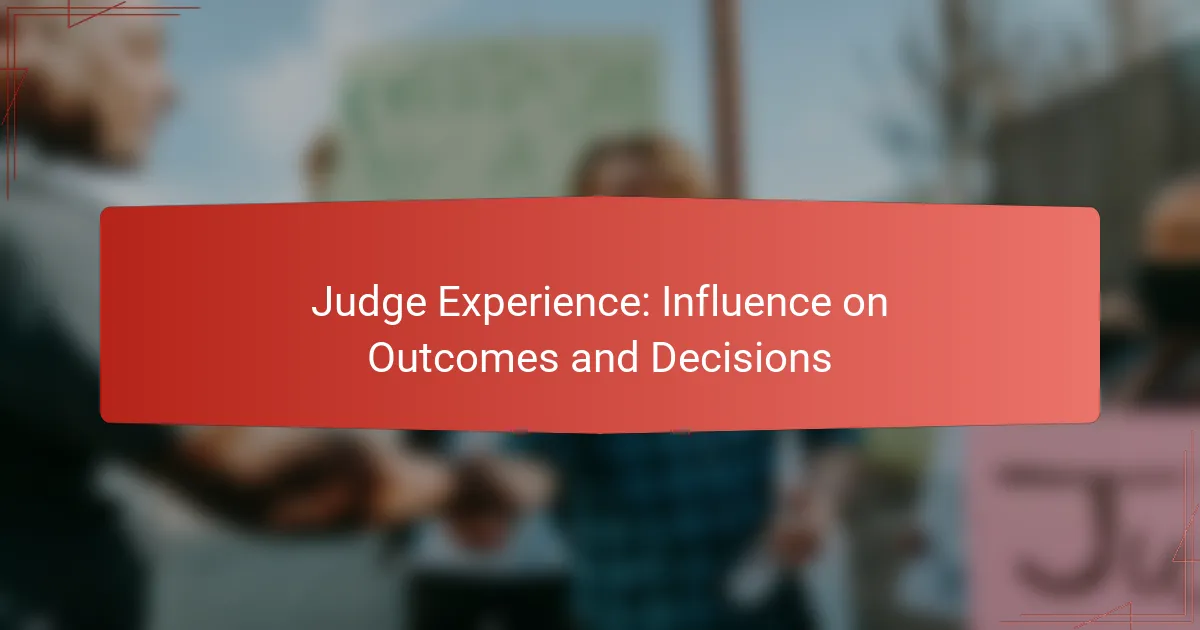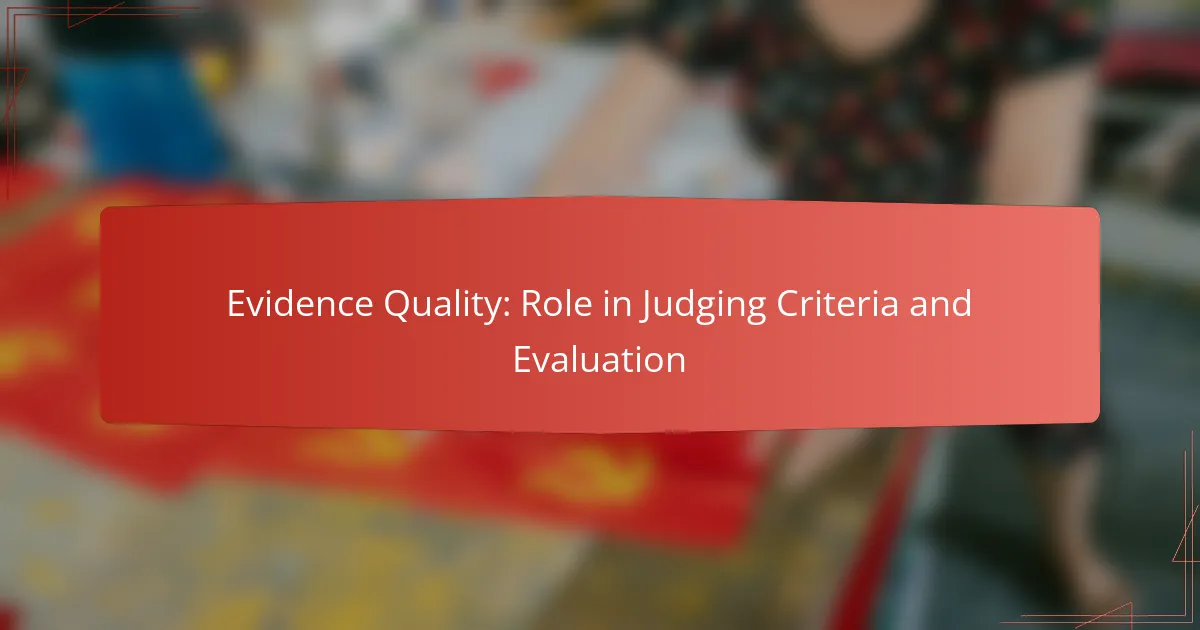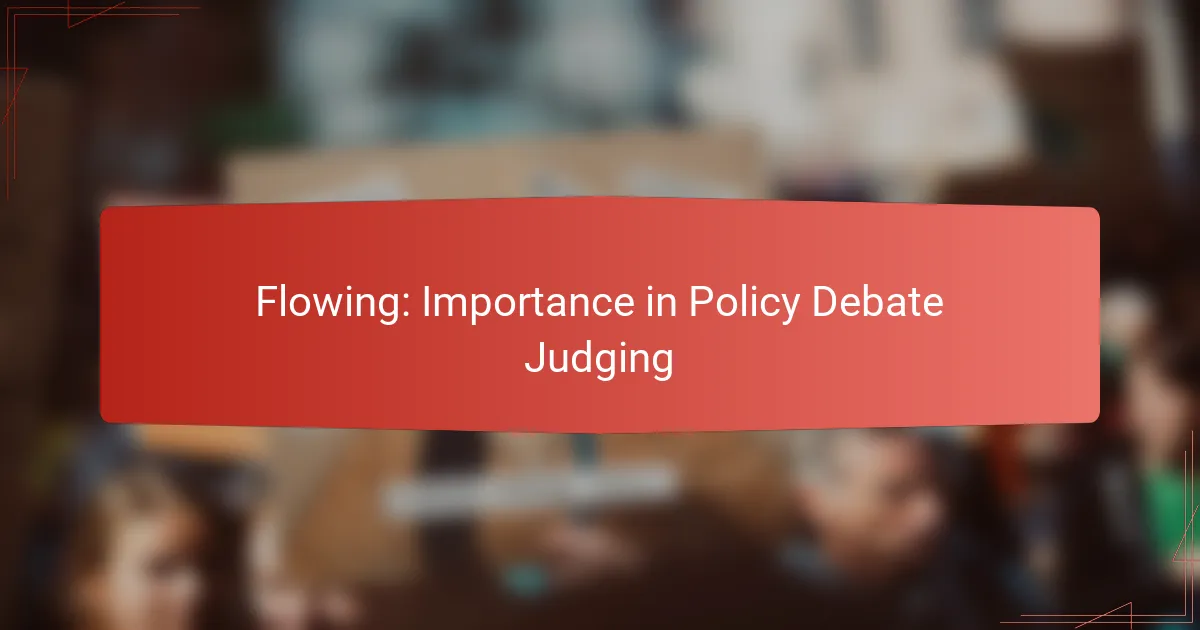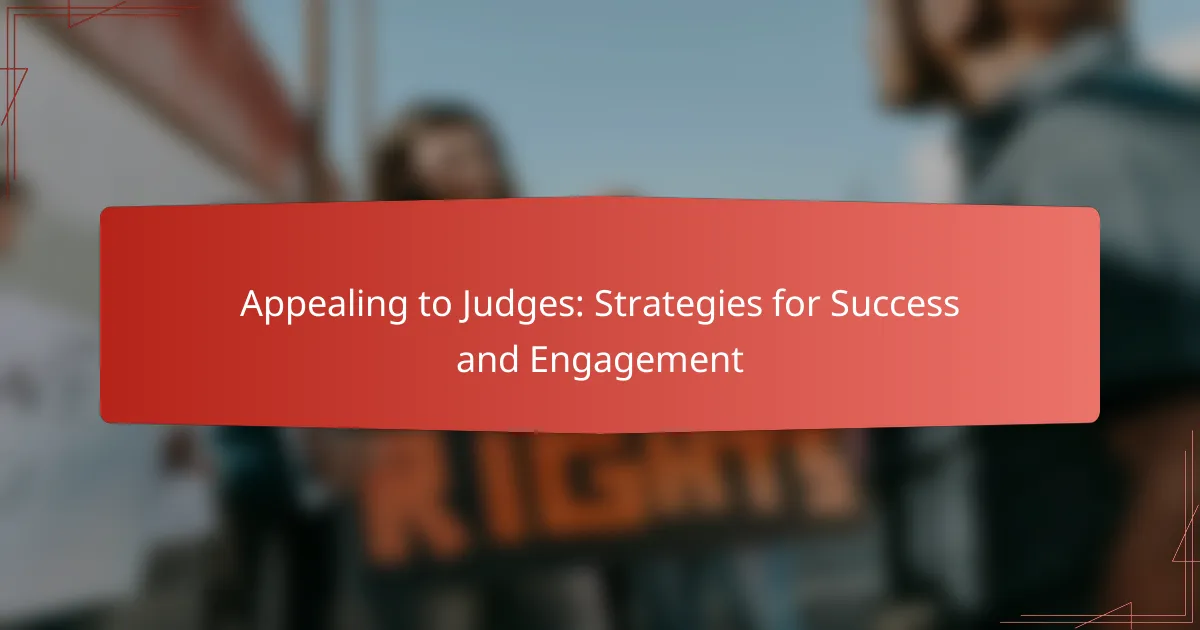The experience of a judge plays a crucial role in influencing case outcomes and decision-making processes. Judges with extensive experience often possess a nuanced understanding of the law, leading to more informed and consistent rulings. Factors such as years on the bench, case variety, and commitment to legal education further shape their judicial effectiveness.
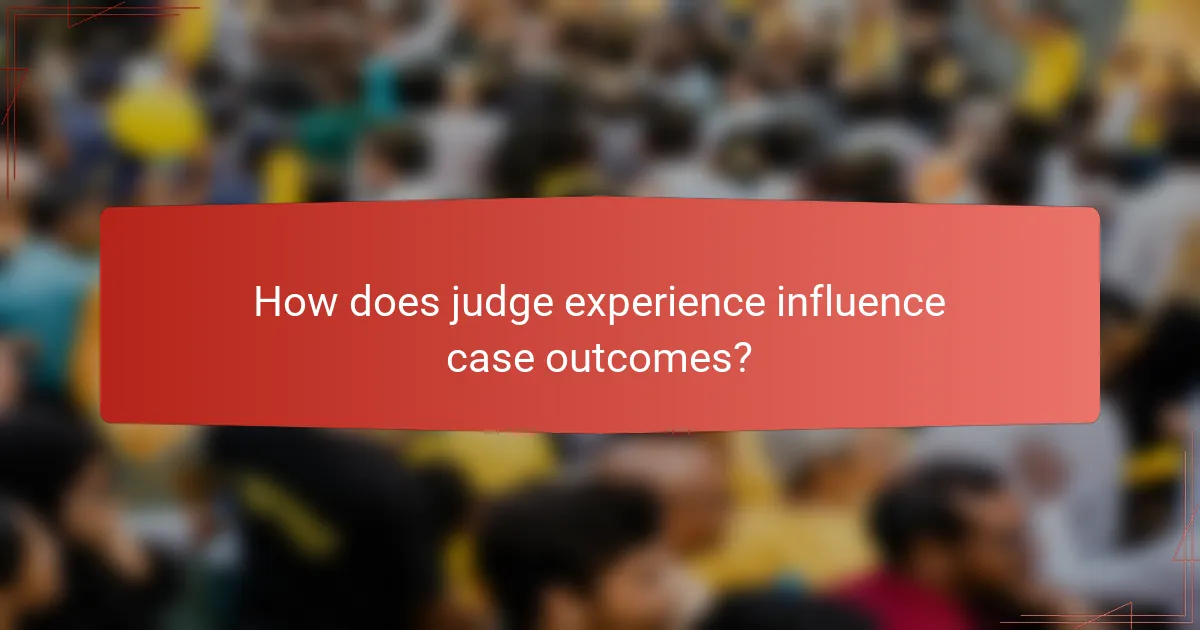
How does judge experience influence case outcomes?
Judge experience significantly impacts case outcomes by shaping their decision-making processes and judicial behavior. More seasoned judges tend to have a deeper understanding of legal nuances, which can lead to more consistent and informed rulings.
Higher conviction rates
Judges with extensive experience often exhibit higher conviction rates, particularly in criminal cases. Their familiarity with legal precedents and courtroom dynamics can result in a more assertive approach to prosecution, influencing the overall outcome of trials.
For instance, a judge who has presided over numerous similar cases may be more inclined to accept evidence that supports a conviction, leading to a trend of higher guilty verdicts compared to less experienced judges.
Variability in sentencing
Experienced judges may demonstrate variability in sentencing based on their understanding of the law and the context of each case. While some may impose stricter sentences due to a strong belief in deterrence, others might opt for leniency, considering mitigating factors.
This variability can create disparities in sentencing outcomes, as judges with different backgrounds and philosophies interpret the same laws in diverse ways. For example, a judge with a background in rehabilitation may favor alternative sentencing options over incarceration.
Impact on jury decisions
The experience of a judge can influence jury decisions significantly. A seasoned judge is often more adept at managing jury dynamics, providing clear instructions, and maintaining order in the courtroom, which can affect how jurors perceive the case.
Moreover, the demeanor and authority of an experienced judge can instill confidence in jurors, potentially swaying their deliberations. A judge who communicates effectively and establishes credibility may lead jurors to align more closely with the presented evidence and arguments.
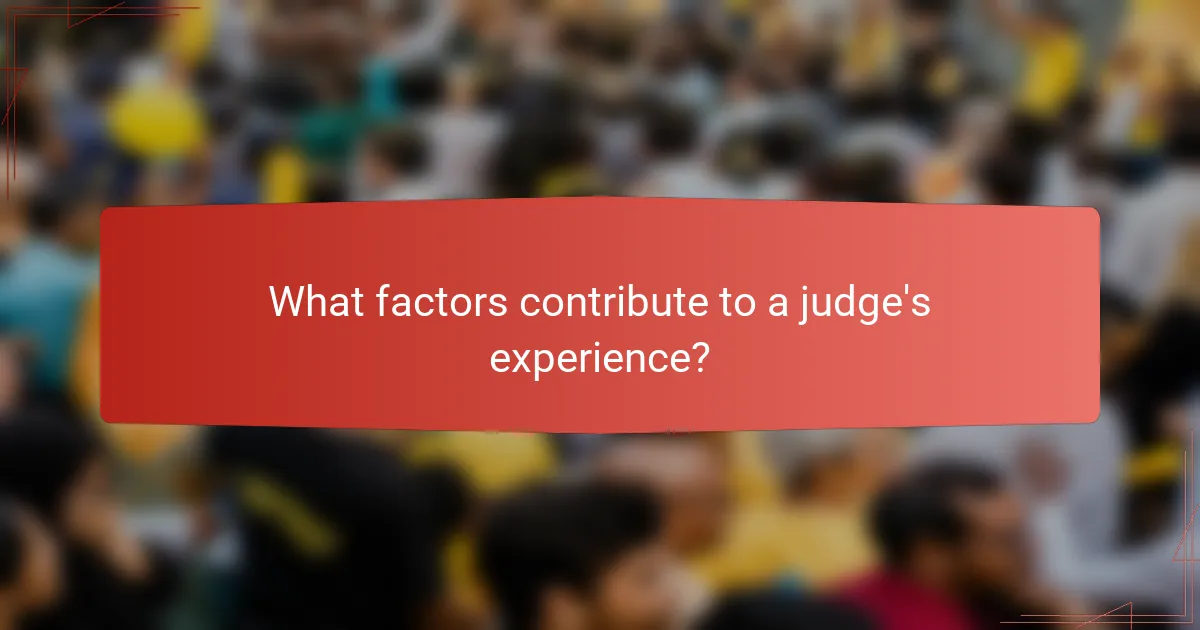
What factors contribute to a judge’s experience?
A judge’s experience is shaped by various factors that influence their decision-making and case outcomes. Key elements include the number of years served on the bench, the types of cases they have handled, and their commitment to ongoing legal education.
Years on the bench
The number of years a judge has spent on the bench significantly impacts their level of experience and familiarity with the legal system. Generally, judges with more years of service are likely to have encountered a wider range of cases and legal issues, enhancing their ability to make informed decisions.
Judges typically start with a probationary period, and many jurisdictions require a minimum number of years before they can be considered for higher court positions. For instance, a judge with over a decade of experience may have a more nuanced understanding of legal precedents compared to a newly appointed judge.
Types of cases handled
The variety of cases a judge has presided over can greatly influence their expertise and decision-making style. Judges who have dealt with complex civil litigation may develop different skills compared to those focused on criminal law or family court matters.
For example, a judge experienced in commercial disputes may be more adept at interpreting contract law, while one with a background in juvenile cases may prioritize rehabilitation over punishment. This specialization can lead to differing outcomes based on the judge’s familiarity with specific legal frameworks.
Continuing legal education
Ongoing legal education is crucial for judges to stay current with evolving laws and legal practices. Many jurisdictions require judges to complete a certain number of continuing education hours annually to maintain their licenses and enhance their knowledge base.
Participation in workshops, seminars, and legal conferences can expose judges to new legal theories and practices, which can directly influence their rulings. Judges who actively engage in continuing education are often better equipped to handle contemporary legal challenges and adapt to changes in the law.
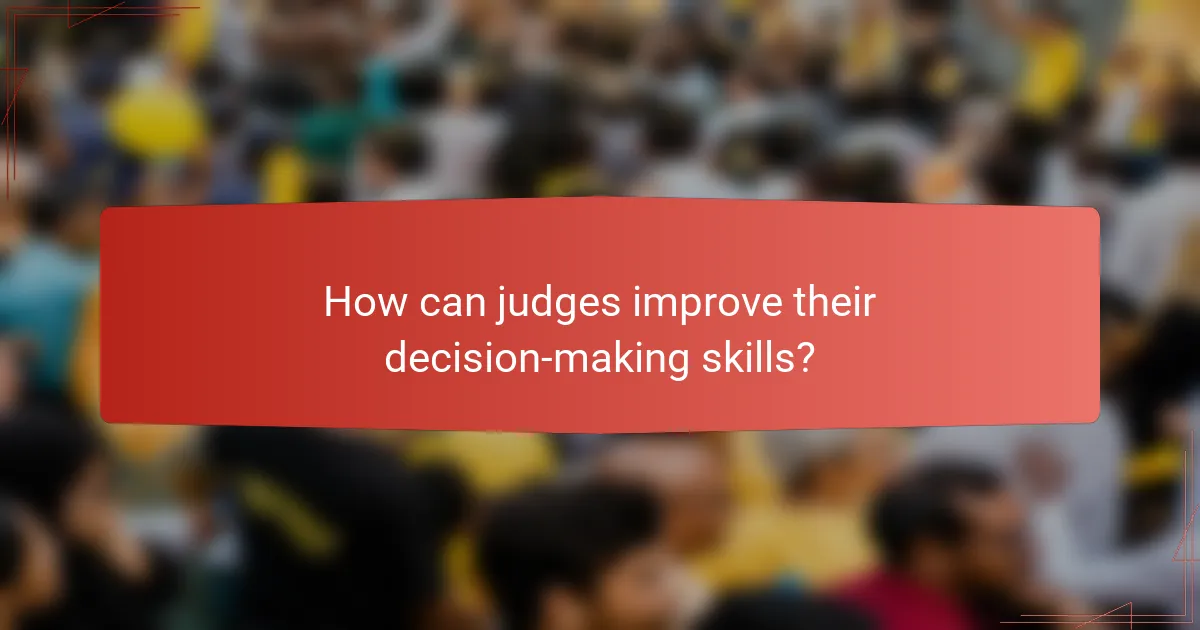
How can judges improve their decision-making skills?
Judges can enhance their decision-making skills through various methods, including mentorship, training workshops, and peer review systems. These approaches provide valuable insights and practical experience that can lead to better judicial outcomes.
Mentorship programs
Mentorship programs pair experienced judges with less experienced ones, fostering a supportive environment for skill development. Through regular discussions and case reviews, mentees can gain insights into complex legal reasoning and decision-making processes.
Judges participating in mentorship can expect to learn about best practices and common pitfalls, which can significantly improve their judgment. Establishing a structured program with clear objectives can help ensure that both mentors and mentees benefit from the relationship.
Judicial training workshops
Judicial training workshops offer judges the opportunity to engage in focused learning on specific legal topics or skills. These workshops often include interactive components, such as role-playing and case studies, which allow judges to practice their decision-making in a controlled setting.
Workshops can cover a range of subjects, from emerging legal trends to ethical considerations. Regular participation in these training sessions can keep judges updated on best practices and enhance their ability to make informed decisions.
Peer review systems
Peer review systems involve judges evaluating each other’s decisions and providing constructive feedback. This process encourages accountability and helps judges reflect on their reasoning and the implications of their rulings.
Implementing a peer review system can involve regular meetings where judges discuss recent cases and share insights. This collaborative approach not only improves individual decision-making but also fosters a culture of continuous improvement within the judiciary.
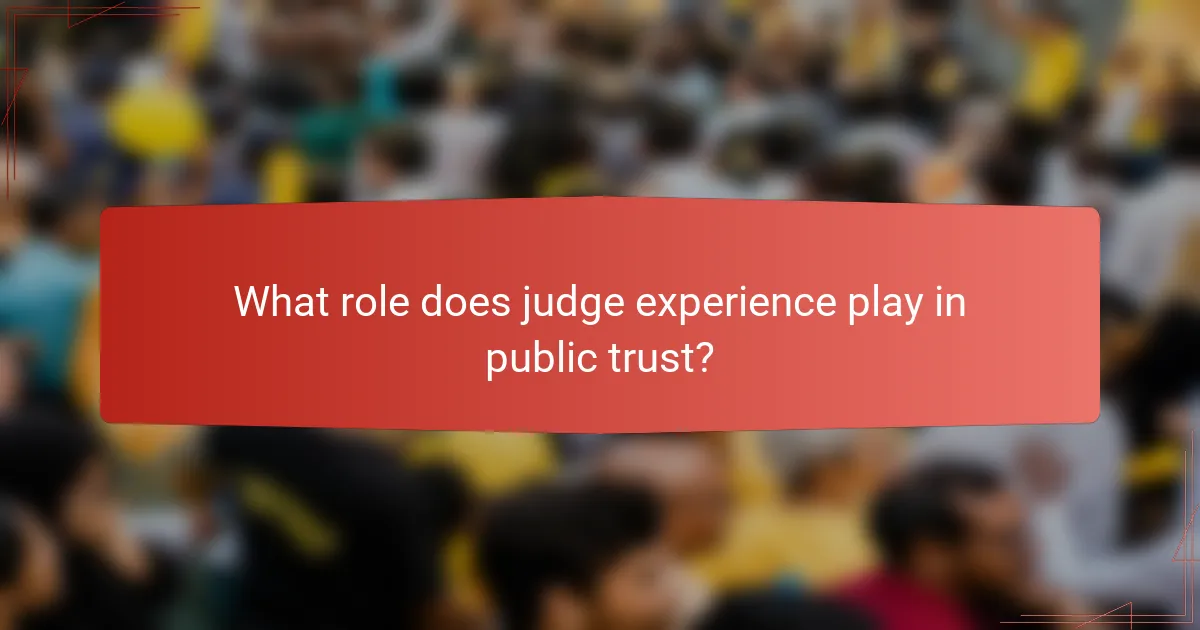
What role does judge experience play in public trust?
Judge experience significantly influences public trust by shaping perceptions of competence and fairness in the judicial system. Experienced judges are often viewed as more capable of making informed decisions, which can enhance the legitimacy of their rulings and the overall trust in the legal process.
Perception of fairness
The perception of fairness is crucial in maintaining public confidence in the judiciary. When judges have extensive experience, they are typically seen as more knowledgeable about legal precedents and procedural nuances, leading to a belief that they can deliver just outcomes. This perception can be bolstered by a judge’s ability to communicate clearly and demonstrate impartiality during proceedings.
For example, a judge with years of experience may handle complex cases with greater ease, providing thorough explanations that help litigants and the public understand the rationale behind decisions. This transparency can foster a sense of fairness, as individuals feel their cases are being treated with the seriousness they deserve.
Judicial accountability
Judicial accountability is essential for sustaining public trust, and experienced judges are often held to higher standards due to their established track records. Their decisions are scrutinized not only by the legal community but also by the public, which expects them to act with integrity and uphold the law consistently. This accountability can deter misconduct and encourage judges to adhere to ethical guidelines.
Moreover, mechanisms such as performance evaluations and public feedback can further enhance accountability. In some jurisdictions, judges may be subject to periodic reviews that assess their decision-making patterns and adherence to legal standards, reinforcing the expectation that experience should correlate with responsible judicial behavior.
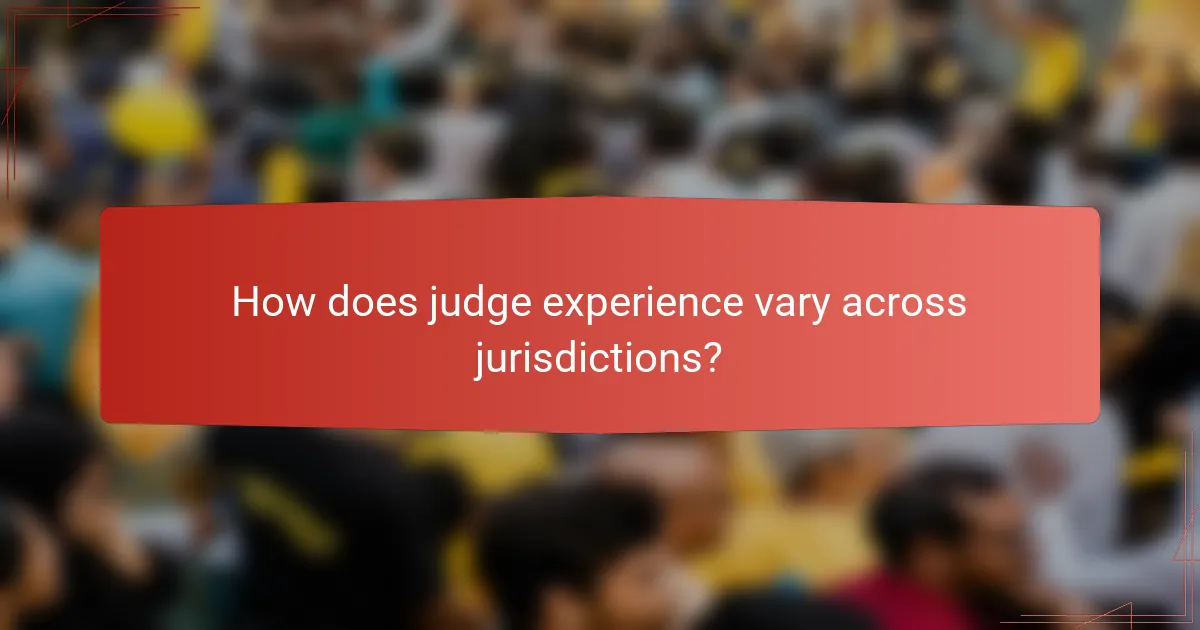
How does judge experience vary across jurisdictions?
Judge experience can differ significantly across jurisdictions due to variations in legal systems, case loads, and local practices. Factors such as whether a judge serves in a state or federal court, or in an urban versus rural setting, can greatly influence their decision-making and outcomes.
State vs. federal judges
State judges typically handle a broader range of cases, including family law, criminal matters, and civil disputes, which can lead to diverse experiences. In contrast, federal judges focus on cases involving federal law, constitutional issues, and disputes between states, often resulting in a more specialized skill set.
The appointment process also differs; state judges may be elected or appointed based on local political dynamics, while federal judges are nominated by the President and confirmed by the Senate, which can affect their judicial philosophy and approach to cases.
Urban vs. rural court systems
Urban court systems often deal with a higher volume of cases and a more diverse population, which can lead judges to develop expertise in handling complex, fast-paced legal issues. Rural judges, on the other hand, may have more familiarity with community-specific issues and a closer relationship with local stakeholders.
The resources available to judges can also vary; urban courts may have access to more legal support and technology, while rural courts might face challenges such as limited staffing and funding. This disparity can impact the efficiency and outcomes of judicial processes in different jurisdictions.
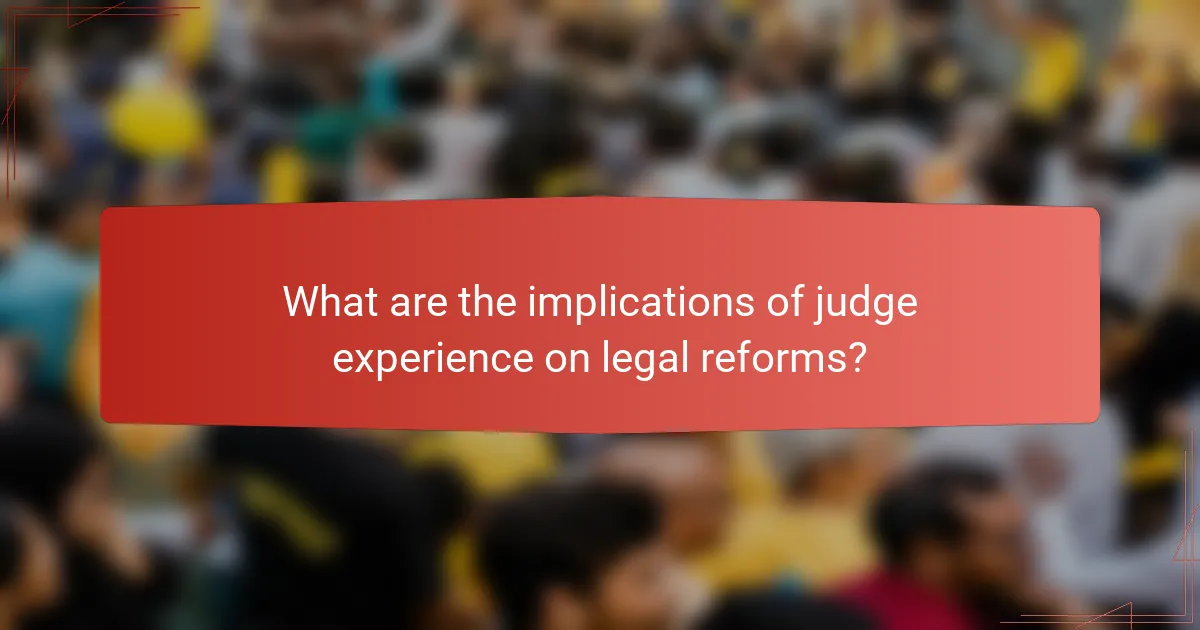
What are the implications of judge experience on legal reforms?
Judge experience significantly influences legal reforms by shaping the interpretation of laws and the implementation of policies. Experienced judges often advocate for reforms that reflect their understanding of the law and its impact on society.
Influence on policy changes
Judges with extensive experience can drive policy changes by interpreting laws in ways that highlight gaps or inconsistencies. Their rulings often set precedents that prompt legislative bodies to reconsider existing laws or introduce new reforms. For instance, a seasoned judge may identify systemic issues in sentencing that lead to calls for criminal justice reform.
Moreover, judges may collaborate with policymakers to draft legislation that addresses the deficiencies they observe in the judicial system. Their insights can help ensure that new laws are practical and effective, ultimately leading to more equitable outcomes.
Impact on judicial appointments
The experience of judges plays a crucial role in the selection of judicial appointments. Appointing authorities often prioritize candidates with a proven track record, believing that their experience will lead to sound decision-making. This trend can result in a more consistent application of the law and stability within the judicial system.
Additionally, experienced judges may be more likely to mentor younger judges, fostering a culture of learning and improvement within the judiciary. This mentorship can enhance the overall quality of judicial decisions, further influencing the direction of legal reforms over time.

What emerging trends affect judge experience in the future?
Emerging trends that influence judge experience include advancements in technology, evolving case management practices, and shifts in public expectations. These factors are reshaping how judges operate, make decisions, and interact with the legal system.
Technology in the courtroom
Technology is increasingly integrated into courtrooms, enhancing the efficiency and effectiveness of judicial processes. Tools such as electronic filing systems, video conferencing, and digital evidence presentation streamline case management and improve communication.
Judges must adapt to these technologies, which can significantly impact their daily routines and decision-making processes. For instance, using video conferencing can expedite hearings, but it requires judges to be comfortable with virtual interactions and technology troubleshooting.
To effectively leverage technology, judges should engage in ongoing training and seek feedback from court staff and legal professionals. This ensures that they remain proficient in using new tools while also addressing any challenges that may arise during their implementation.
